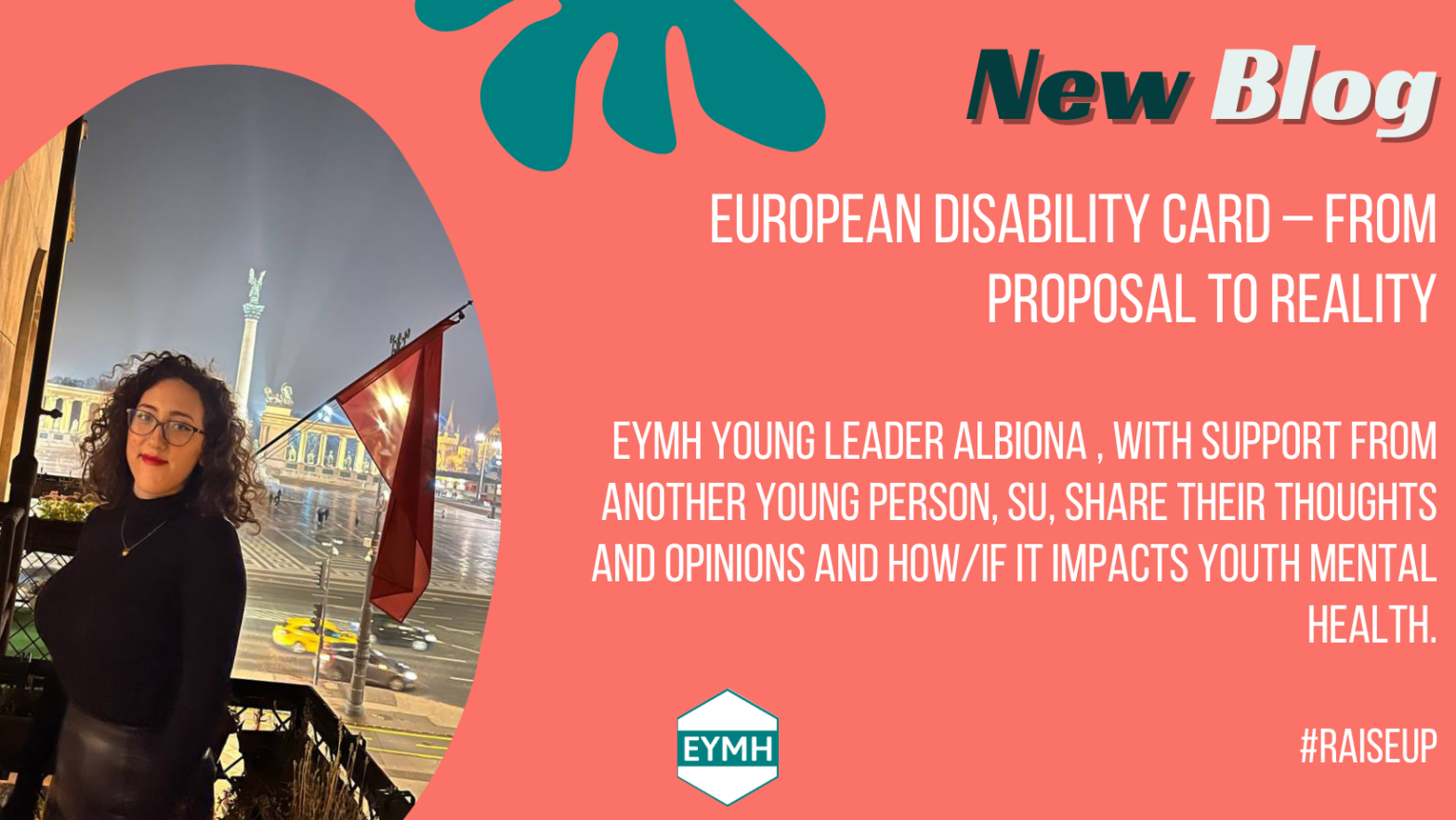Earlier in November, EYMH Young Leaders Albiona and Su, attended a webinar hosted by European Disability Forum (EDF). They went, to hear more about the European Disability Card that is currently being discussed and how/what any barriers may be to this happening and how it impacts mental health, if at all. Below is a reflection & opinion blog from Albiona, with support from Su on this work.
I am Albiona and I am 24. I attended the webinar “European Disability Card (EDC) – from proposal to reality”. EDC is a project that strives to increase the participation and involvement of individuals with disabilities in society across the European Union. For this, the EDF held a very informative and transparent meeting on what they believe to be successes and downfalls of the card. The aim of this webinar was to focus on the journey of the card, covering the proposal stage and how it has grown into the journey of a physical reality.

The reason this webinar is called “proposal to reality” is to explain that the card doesn’t exist yet but to make sure the card will be implemented. For me, it was important to attend as it gave me an understanding of the evolution of the EDC project, by giving me insights into the history of how this started years ago, in 2011, and to understand its developmental stages. The webinar addressed challenges faced during the proposal phases of the EDC and shed light on the importance of the Card in various aspects of life. The accessibility to the webinar was very well thought. There were around 100 participants in the meeting.
According to the history of the project, I got to know that the European Commission started a pilot project in 2015, but the card had a limited scope, only in 8 countries and only in some services. On top of it, it was voluntary for service providers. Coming to when this legislation will be implemented there will be two cards, a European Disability card, and a parking card. The European Parking Card will be an additional, will be recognized everywhere, and will replace national cards. But the law still needs to be discussed and the proposal to be amended.

During the webinar mental health was not explicitly mentioned. The European Disability Card could be beneficial for young people struggling with mental health, as mental health diagnosis, is classed as disability (see our study week programme report on this here). For instance, it can facilitate access to support services, and the EDC is one tool in the broader context of creating an inclusive and supportive environment for individuals struggling with mental health.
It will be a long journey. There are strengths and weaknesses found in the proposal. It has strengths in that it is quite inclusive, respects privacy, and has voluntary use, so people are not required to show the Card to access other rights. Sadly, in addition to the lack of protection for all individuals with the same disabilities across the union, a weakness they pointed out would be that there will be no social protection provided by the card. This issue can mean a lot of things for different groups of individuals, however focusing down on mental health in youth raises a big flag on how the youth will not be protected in areas such as job selection or application bias, nor even the everyday discrimination they could face for owning a disability card.
The last half an hour of the webinar was given to answer the questions that were raised by the people who joined the webinar. These led to discussion regarding the digitalization of the card, and ways to contribute, which we can do by raising awareness and sharing opinions to the ministry responsible in our country. When asked, if this meant that at least across Europe, there would be a common/standard classification of disabilities to ensure each individual in each country received the same treatment and was able to get it continuously regardless of which European country they might move to, they seemed to be a bit more reluctant on the standardization.
To this, the audience were also worry about the potential for person with disabilities travels to another country, they worried this person may end up with preferential treatment over a local with the same disability. They also supported this claim by saying the EU cannot regulate everything and each nation might still be subjected to their own criteria.
“Things are moving; it takes time but we have to push through” was a statement of one of the leaders of the webinar from EDF. In general, it was an informative webinar with a great initiative.
